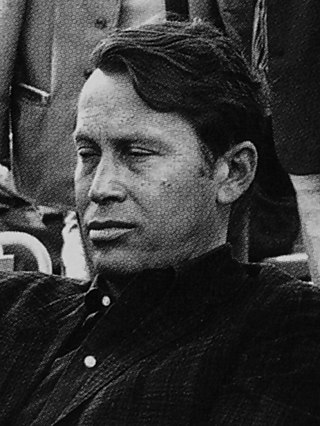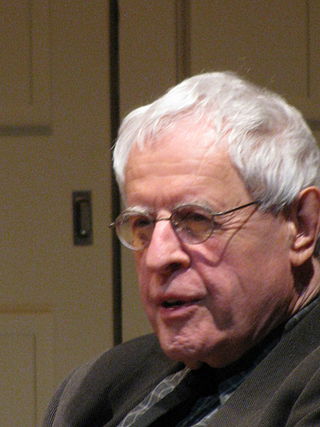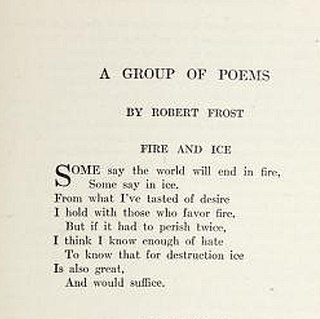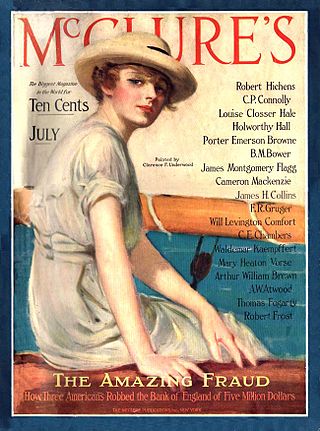
Robert Lee Frost was an American poet. Known for his realistic depictions of rural life and his command of American colloquial speech, Frost frequently wrote about settings from rural life in New England in the early 20th century, using them to examine complex social and philosophical themes.

Wallace Stevens was an American modernist poet. He was born in Reading, Pennsylvania, educated at Harvard and then New York Law School, and spent most of his life working as an executive for an insurance company in Hartford, Connecticut.

Richard Purdy Wilbur was an American poet and literary translator. One of the foremost poets of his generation, Wilbur's work, often employing rhyme, and composed primarily in traditional forms, was marked by its wit, charm, and gentlemanly elegance. He was appointed the second Poet Laureate Consultant in Poetry to the Library of Congress in 1987 and received the Pulitzer Prize for Poetry twice, in 1957 and 1989.

A rubāʿī or chahārgāna is a poem or a verse of a poem in Persian poetry in the form of a quatrain, consisting of four lines.

Dušan Simić, known as Charles Simic, was a Serbian American poet and co-poetry editor of the Paris Review. He received the Pulitzer Prize for Poetry in 1990 for The World Doesn't End and was a finalist of the Pulitzer Prize in 1986 for Selected Poems, 1963–1983 and in 1987 for Unending Blues. He was appointed the fifteenth Poet Laureate Consultant in Poetry to the Library of Congress in 2007.

Sharon Olds is an American poet. Olds won the first San Francisco Poetry Center Award in 1980, the 1984 National Book Critics Circle Award, and the 2013 Pulitzer Prize for Poetry. She teaches creative writing at New York University and is a previous director of the Creative Writing Program at NYU.
The following are the Pulitzer Prizes for 1924.
Poetry Please is a weekly radio programme broadcast on BBC Radio 4 in which listeners request poems, which are then read by a cast of actors. It is broadcast on Sunday afternoons and repeated the following Saturday night. The current presenter is Roger McGough, himself a poet. Performers regularly include some of the top names in British acting, such as Judi Dench, Ian McKellen, Prunella Scales and Timothy West.

"Nothing Gold Can Stay" is a short poem written by Robert Frost in 1923 and published in The Yale Review in October of that year.
— Opening lines from The Waste Land by T. S. Eliot, first published this year
—From Robert Frost's "Stopping by Woods on a Snowy Evening", first published this year in his collection New Hampshire
"Stopping by Woods on a Snowy Evening" is a poem by Robert Frost, written in 1922, and published in 1923 in his New Hampshire volume. Imagery, personification, and repetition are prominent in the work. In a letter to Louis Untermeyer, Frost called it "my best bid for remembrance".
Nationality words link to articles with information on the nation's poetry or literature.

"Fire and Ice" is a short poem by Robert Frost that discusses the end of the world, likening the elemental force of fire with the emotion of desire, and ice with hate. It was first published in December 1920 in Harper's Magazine and was later published in Frost's 1923 Pulitzer Prize-winning book New Hampshire. "Fire and Ice" is one of Frost's best-known and most anthologized poems.
Bruce Weigl is an American contemporary poet whose work engages profoundly with experience of both Americans and Vietnamese during and after the Vietnam war.

"Out, Out—" is a 1916 single stanza poem authored by American poet Robert Frost, relating the accidental death of a young man, with references to Shakespeare's Macbeth.
"The Oven Bird" is a 1916 poem by Robert Frost, first published in Mountain Interval. The poem is written in sonnet form and describes an ovenbird singing.

Collected Poems of Robert Frost is a collection of poetry written by Robert Frost and published in 1930 by Henry Holt and Company in New York.
"Desert Places" is a poem by Robert Frost. It was originally written in 1933 and appeared in The American Mercury in April 1934, before being collected in Frost's 1936 book A Further Range. The book was awarded the Pulitzer Prize in 1937.










